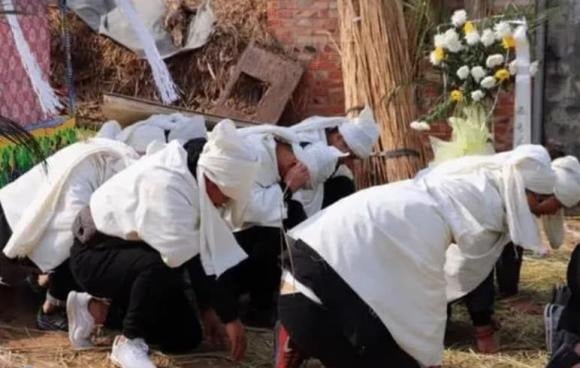Ancient Society and the Significance of Life Events
In ancient agrarian societies, families often lived in cramped houses, especially in rural areas. When a funeral occurred, the family required ample space to place the coffin and receive guests. Therefore, borrowing a neighbor’s house to hold the funeral became a common and necessary act, demonstrating mutual support and respect for filial piety.
In contrast, weddings and childbirth were considered more personal and intimate family affairs. Weddings were seen as a once-in-a-lifetime event, deeply intertwined with the couple’s married life. Wedding days were regarded as sacred and private occasions. In this context, borrowing a house for a wedding would not only violate privacy but also be deemed impractical.

Ancient agrarian societies often featured families living in cramped houses, particularly in rural areas.
Meanings and Beliefs
This saying highlights the distinction in the nature of these events and embodies profound respect for and adherence to customs. Funerals were viewed as sorrowful occasions, devoid of the joy associated with weddings. Weddings entailed sacred and solemn rituals, hence the need for a private and personal space.
In traditional culture, borrowing a house for a wedding could be interpreted as disrespectful to the privacy and solemnity of the rituals. Weddings involved numerous customs and ceremonies, requiring meticulous preparation to ensure the success of the event. Holding it in a borrowed venue might diminish the seriousness and dignity of the occasion.

The saying reflects a deep-rooted distinction between the nature of events and a respect for customs.
Additionally, the term “coffin” (棺材) in Chinese has the same pronunciation as “升官发财” (shēng guān fā cái), which signifies “inviting fortune.” In ancient beliefs, the image of a coffin was considered a sign of good luck.
On the contrary, “not lending a house for a wedding” was akin to “not lending a bed to a newlywed couple.” It was considered taboo to lend a house to a newly married couple for their wedding and subsequent night, as it was believed to bring bad luck to the family. According to ancient superstitions, the virgin blood of the bride on the wedding night was deemed impure, foreboding ill fortune for the host family.
The Importance of Customs
Although modern society has transformed many ancient customs, including the practice of borrowing houses, this proverb continues to reflect the profound cultural values and respect accorded to rituals and significant life events.
It serves as a reminder of the importance of preserving cultural values and traditional customs, even as societal norms and lifestyles evolve over time.
The Spooky Month: Night-Time Activities to Avoid
In folklore, the seventh month of the lunar calendar is known as the “Month of the Hungry Ghosts”. It is believed that during this time, hungry and restless spirits roam the Earth, seeking sustenance and relief from their suffering. The nights are particularly active, with numerous spirits emerging from the shadows.
The Top 3 Home-Related Don’ts for July: Superstition or Savvy?
In many cultures, the seventh month of the lunar calendar is considered a time to avoid undertaking any significant home-related projects. Superstition dictates that any renovations or significant changes to one’s home during this period may result in unforeseen troubles and challenges. It is believed that by refraining from such activities, one can avoid any potential negative consequences and maintain harmony within their living space.





































